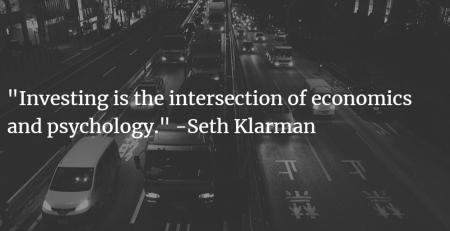Investing vs Speculating: A Bitcoin Story
There is an old story about the market craze in sardine trading when the sardines disappeared from their traditional waters in Monterey, California. The commodity traders bid them up and the price of a can of sardines soared. One day a buyer decided to treat himself to an expensive meal and actually opened a can and started eating. He immediately became ill and told the seller the sardines were no good. The seller said, “You don’t understand. These are not eating sardines, they are trading sardines.”
Investing vs Speculating
- It’s a decentralized and independent currency that the Government can’t devalue as they go deeper and deeper into debt. This idea is the result of a fundamental misunderstanding of what money is and how the economy works. Money isn’t something we have. Productivity is something we have, money is something we can get. Money is credit. All major currencies today are fiat currencies. Have a good business idea? A bank will create a deposit asset for you out of thin air that you can use for building up that idea. If it works, pay them back and the economy now has an enterprise that wouldn’t otherwise exist. There is no reason that this transaction needs to be artificially fixed to how much currency or metal is available in a given system. Instead, the money supply should (and does) expand or contract with the supply of productive endeavors in an economy. A fixed currency leads to deflation and hoarding.
- Restricted Supply – Similar to gold, there is a theoretical limit to the number of Bitcoins that will ever exist, about 21 million. But remember our GCI mug example- scarcity itself does not equal value. Also, for an asset with a main selling point of restricted supply, there is certainly no dearth of other cryptocurrencies to invest in. In fact, Bitcoin isn’t even the best performing cryptocurrency this year- Binance Coin, Tezos, Litecoin, and Bitcoin Cash are all up more. It is no coincidence that the largest cryptocurrencies by market cap are the ones that people have the easiest access to on Coinbase. It follows that as more people gain access to different cryptocurrencies, the price of each will be diluted.
- Blockchain – this is a revolutionary distributed ledger that allows people to transact with each other over the internet even when they don’t trust each other. But it also happens to be a free and open source technology. A useful analogy is the internet itself. Back in the 1990s, it was very clear that there was a ton of value in the internet. Certain companies jumped on the wave and were handsomely rewarded for doing so, but there was nothing stopping competitors from doing the same. Some of these competitors innovated and built upon the work of those that came before them, and some of these competitors just added dotcom to their name and ran away with the money. Like the internet, the blockchain is open to innovators and scammers alike. There is no reason Bitcoin must be the winner here long-term just for being first.
Conclusion
Disclosures: This website is for informational purposes only and does not constitute an offer to provide advisory or other services by Globescan in any jurisdiction in which such offer would be unlawful under the securities laws of such jurisdiction. The information contained on this website should not be construed as financial or investment advice on any subject matter and statements contained herein are the opinions of Globescan and are not to be construed as guarantees, warranties or predictions of future events, portfolio allocations, portfolio results, investment returns, or other outcomes. Viewers of this website should not assume that all recommendations will be profitable or that future investment and/or portfolio performance will be profitable or favorable. Globescan expressly disclaims all liability in respect to actions taken based on any or all of the information on this website.
There are links to third-party websites on the internet contained in this web-site. We provide these links because we believe these websites contain information that might be useful, interesting and or helpful to your professional activities. Globescan has no affiliation or agreement with any linked website. The fact that we provide links to these websites does not mean that we endorse the owner or operator of the respective website or any products or services offered through these sites. We cannot and do not review or endorse or approve the information in these websites, nor does Globescan warrant that a linked site will be free of computer viruses or other harmful code that can impact your computer or other web-access device. The linked sites are not under the control of Globescan, and we are not responsible for the contents of any linked site or any link contained in a linked site. By using this web site to search for or link to another site, you agree and understand that such use is at your own risk.






